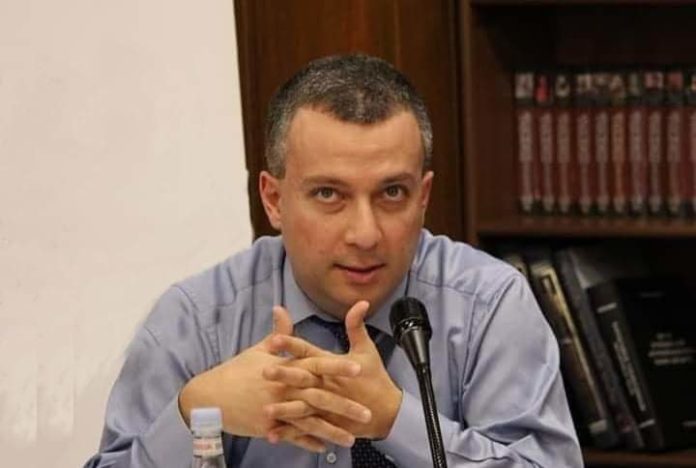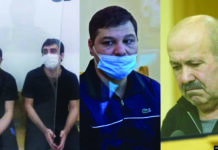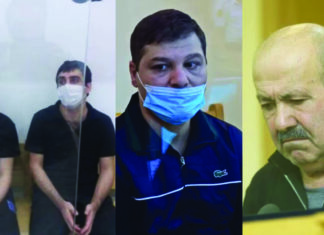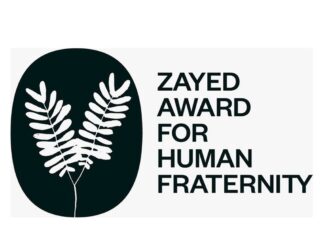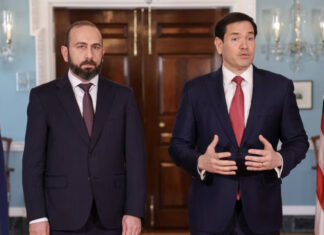November 2022 was not the best month for the Armenia–Azerbaijan negotiation process. After the promising developments of late September–October 2022, when Armenia and Azerbaijan endorsed the Prague statement, and both sides even started to discuss the possibility of signing a peace agreement by the end of 2022, Azerbaijan has returned to its usual rhetoric of threats and intimidation.
On November 8, Azerbaijani President Ilham Aliyev stated that all Armenian border towns were within the reach of Azerbaijani weapons, a thinly veiled threat of new aggression against Armenia. On November 25, while meeting with participants of an international conference on the “Middle Corridor” held in Baku, Aliyev moved further, stating that Armenia was a satellite state and that Armenians needed psychological support as a nation. However, the use of non-diplomatic language was not the primary feature of that speech. The Azerbaijani president once more rejected any possibility for establishing an international mechanism to launch negotiations between Azerbaijan and Nagorno Karabakh (Artsakh).
Thus, Azerbaijan refused to accept the US vision for normalizing Armenia and Azerbaijani relations. It was based on Armenia’s recognition of Azerbaijani territorial integrity within Soviet Azerbaijan borders and the simultaneous launch of Azerbaijan–Nagorno Karabakh negotiations within an international framework to guarantee the security of Armenians. Meanwhile, the Azerbaijani leadership continues to issue threats against Armenia and the Nagorno Karabakh Republic, hinting that if Armenia does not sign an agreement based purely on Azerbaijani terms, Azerbaijan will launch a new aggression against Armenia and/or Nagorno Karabakh. To prepare a suitable information environment for the “justification” of new aggression, the Azerbaijani Ministry of Defense issues daily statements about shootings against Azerbaijani troops, accusing Armenia and the Nagorno Karabakh Republic of ceasefire violations. This Azerbaijani behavior repeats the patterns of late July and early September 2022. In both cases, large-scale Azerbaijani aggression followed, on August 1 and 3 against the Nagorno Karabakh Republic and on September 13-14 against Armenia.
Simultaneously, Azerbaijan took steps to ruin the Brussels format of negotiations. During his November 25 speech Aliyev stated that he would not take part in the planned December 7 summit in Brussels with Prime Minister Pashinyan. Aliyev cited the participation of President Emmanuel Macron as a primary reason for his decision, accusing France of pro-Armenian and anti-Azerbaijani positions. However, France has kept its position the same since the 2020 Nagorno Karabakh war ended. Moreover, it did not prevent President Aliyev from negotiations with the involvement of President Macron in December 2021 and on October 6, 2022.
Thus, most probably, Azerbaijan is not satisfied with the recent developments in the negotiation process. Probably, Baku hoped that after the signature of the Prague statement on October 6, Armenia would be ready to sign a peace agreement with Azerbaijan accepting Azerbaijani claims that Nagorno Karabakh did not exist anymore. Few details are available about negotiations that took place in Washington on September 27, 2022, between the secretary of Armenia’s security council Armen Grigoryan and top foreign policy aide to President Aliyev Hikmet Hajiyev, as well as on November 7, 2022, between Armenian and Azerbaijani foreign ministers. However, given Azerbaijan’s increasingly aggressive rhetoric, Baku was not satisfied by the results of these meetings.
Meanwhile, Russia re-inserted itself into the negotiation process by organizing a trilateral summit on October 31, 2022. On December 1, Russian Foreign Minister Sergey Lavrov revealed interesting details about the negotiation process. According to him, Russia shared its version of the peace agreement with Azerbaijan and Armenia in spring 2022, which envisaged the postponement of the status of Nagorno Karabakh for future discussions. Lavrov said that Armenia and Azerbaijan preliminarily agreed to this option, though Azerbaijan argued that the issue of the status of Nagorno Karabakh needed future clarifications. However, Armenia and Azerbaijan signed a Prague statement on October 6, 2022, recognizing each other’s territorial integrity based on the Alma-Ata declaration of 1991, which fixed the administrative borders of former Soviet republics as international ones. According to the Russian foreign minister, this meant that Armenia recognized Nagorno Karabakh as part of Azerbaijan, as during the Soviet Union, Nagorno Karabakh was an autonomous unit within Soviet Azerbaijan.



